By Rav Aharon Kotler zt”l translated by Rabbi Yair Hoffman for 5tjt.com
It is known that the special nature of a particular time follows according to that which happened during that time [in the past]. The yemei hagbalah – the days of separation are included in this in general, and the Yom Tov of Shavuos in particular. We are especially prone and capable of accepting the yoke of Torah during this time and to achieve those devices in which one can acquire Torah. Without these “acquisition devices” the Torah cannot be acquired. It is just like any other item that cannot be obtained except through the method of kinyan that is effective for that item.
TORAH CAN ONLY BE RETAINED THROUGH THIS
If we achieve Torah through any other method, we will not merit to recognize the truth in it. He will not retain his learning, nor will it be considered his Torah (See Avodah Zarah 19b).
EMUNAH IN TORAH MIN HASHAMAYIM INVOLVES ALWAYS REMEMBERING HAR SINAI
The Pasuk (Dvarim 4:9) tells us: “But beware and watch yourself very well, lest you forget the things that your eyes saw, and lest these things depart from your heart, all the days of your life..” The Ramban there explains that this is the essence of Emunah in Torah min hashamayim – that is – constantly remembering how we stood at Har Sinai. This is also explained in the Rambam Yesodei haTorah (8:1) that our standing at Har Sinai is a deeper fundamental principle than all of the signs and wonders. The obligation of “And you shall inform your children and grandchildren” at the end of the Pasuk (in Dvarim 4:9) refers to this obligation – that our standing at har Sinai must truly be within the concept of “that your eyes saw,” – for this is the foundation of Emunah in the laws of the Torah.
Now, Chazal have said (Avos 3:8 and Yuma 38b) that one who forgets one item of his learning is liable with his life. The Gemorah in menachos 99b explains that he is in violation of 3 lavin. These 3 lavin are derived from the pasuk of “But beware and watch yourself..”
REMEMBERING TORAH AND REMEMBERING HAR SINAI ARE SYNONYMOUS
The understanding of this concept is that the “remembering of divrei Torah” and the remembering of “Matan Torah – how we got the Torah” are, in fact, one and the same. The remembering of Matan Torah and how we stood at Har Sinai are both dependent upon and contingent upon our remembering our learning. This is as the posuk in Dvarim (5:19) states: Hashem spoke these words.. with a great voice, velo yasaf – that did not cease.” Unkelus translates, “velo yasaf” to mean that it did not stop. That is, the sound of Matan Torah exists and stands in the Torah [itself].
WHY THERE ARE NO COMMEMORATIONS FOR MATAN TORAH
It is for this reason that all the commemorations and signs are connected to Yetzias Mitzrayim – and not to the commemorate Har Sinai – even though it is the foundation of everything as mentioned earlier. Indeed, Shavuos is not even mentioned in the Torah as the time of Matan Torah.
This is what Dovid HaMelech wrote in Tehillim (62:12): “Hashem spoke one thing, I heard two..” – that Maamad Har Sinai has the commandments of the Torah and the Emunah in Torah itself intertwined together inside it. The entire Torah is within the parameters of “that your eyes have seen” – for its general principles and its specific details were said at Sinai (Chagigah 6b, Sotah 37b, Zvachim 116a). This is to the extent that it includes what any future venerable student will innovate in the future (Vayikrah Rabbah 22:1; Yerushalmi Pe’ah 2:6).
It is further explained in the works of the earlier commentators (Rav Saadya Gaon and others) and in the Vilna Gaon, that the entire Torah is contained within the Aseres haDibros, and that all of the positive Mitzvos in the Torah are contained in the words “Anochi.” And that all the negative Mitzvos in the Torah are in the words, “Lo Yihe’ye – Do not have [other gods before Me].
FORGETTING JUST ONE ITEM OF TORAH IS A LOSS IN THE ENTIRE TORAH
And if one forgets just one item of his Torah knowledge, there is a forgetting and a general loss in the entire Torah – “the words that your eyes have seen, for all words of Torah are tied to and connected one to the other (Shir Hashirim Rabbah 1:18 “close to and similar.. one to the other”; Yerushalmi, Rosh HaShana 3:5 Divrei Torah are poor in one area and rich in another area; Krisus 14b Tosfos “elah”; Tanchumah Chukas 23; BaMidbar Rabbah 19:17 “they need each other for what this section locks up the other section opens”; See also Maalos HaTorah [yh: who cites his brother the Vilna Gaon] that in every commandment is included the entire Torah – it is, therefore, called, “Etz Chaim – a Tree of Life.” [yh: because a tree is made up of many parts, but in each seed is the possibility to produce an entire tree]). This is also as it is stated in (Tehillim 19:8), Toras Hashem Temimah – the Torah of Hashem is whole and perfect – meshivas nefesh – it restores the soul” – only when it is complete and whole.
WHY THERE ARE TWO OBLIGATIONS OF STUDYING TORAH
This is the obligation of knowing the entire Torah, in addition to the general obligation of studying Torah (Ran in Nedarim 5a based on Kiddushin 30a “Veshinantam – that the words of Torah should be sharp in your mouth; Rambam Hilchos Talmud Torah 1:3 from the drasha on the pasuk velimadtem 29:2). The reason why they were especially stringent on forgetting is because relearning old material that was forgotten is more difficult than learning new material (Yuma 29a). Therefore, through his already having learned it and forgot it – he is more distant from the knowledge – and he had actively distanced himself from it. There is also the issue of disrespecting it for it is not important enough to him to ensure that he guard over it. And even in this he loses it (See Brachos 62b on the Pasuk,
But the point of the matter is the obligation to learn and to know as much as he is capable of doing, the entire Torah. For this is true completion and perfection of the Torah in each of its details – for everything is dependent upon the other as explained earlier.
The matter is likewise in regard to granting ordination – you do not grant smicha for just one area of knowledge. Rather, one must know and understand and rule in the entire area of Torah (Yerushalmi Chagigah 1:8; Rambam Hilchos Sanhedrin 4:8). The more he knows and the more he remembers, the more he has fulfilled for himself his connection to Torah and his belief in Torah in a complete manner. [The Torah of Hashem is] Whole – it restores the soul (See Midrash Shochar Tov on the pasuk]. For on this – the remembering of Divrei Torah and the remembering of the Giving of the Torah are one – Hashem spoke once – two things I heard.
FULFILLING OUR OBLIGATION BY MAKING FENCES
In these days, when we speak about Maamad Har Sinai etc. we must know that the entire fulfillment of Maamad har Sinai for us is through iyun in Torah and steadily learning Torah without interruption and without pause. We must make gedarim, fences, implement ideas and practical tactics [to enable us to do this], for without this it is impossible. The greater the matter of Talmud Torah, which is the foundation of everything, the greater is the yetzer harah – as is known.
TAKING A SHVUAH TO FULFILL A MITZVAH
The Gemorah in Nedarim 8a cites Rav Gidel in the name of Rav: From where do we know that it is permitted to swear in order to fulfill a Mitzvah? As it is stated (Tehillim 119:106) “I have sworn, and have fulfilled it, to observe Your righteous ordinances..” But he has already sworn to uphold the Torah at Sinai and an oath does not fall upon a previous oath! Rather, what does it teach us? that a person may encourage himself. But this was the first teaching of Rav Gidel! Because of this, the oath is effective upon him. (Rambam Hilchos Shavuos 11:3; SA YD 263:6). The Mishna there in 9a states: If a person states that he accepts it upon himself with the wording of, “like the vows of the wicked” – this is effective because the wicked customarily take vows. If he says: “Like the vows of kosher people”, he has not said anything, because kosher people do not generally take vows. Later, the Gemorah answers that it is like Hillel the Elder, where the braisah says about him that no person misused his burnt-offering in his lifetime. How did he ensure this? He was careful not to consecrate the animal in advance; rather, he would bring it when it was unconsecrated to the Temple courtyard and there he would consecrate it.. and there was no opportunity to misuse it.
NOT JUST FOR AN OFFERING
And in the Nemukei Yoseph there (Nedarim 2a in the Rif pages] he writes in these words: “And we learn from here that it is not just a case of a kosher person swearing to bring an offering, rather, if he wants to do anything such as giving money to a poor person or redeeming captives – if someone has the item in hand he should give it right away, and if not he should be quiet and not recite the oath until he has it in hand. However, if it is applicable to his own Mitzvah and he is obligated in it such as if he said, “I will learn this perek of Torah”, and he sees that he is delaying himself from fulfilling it and he sees that he is giving up on it, it is permitted to make an oath on it – for matters that encourage himself are permitted – like Rav Gidel..”
Now we see that a neder is a matter that is so serious that a general neder is described as an oath of evildoers, out of a concern that he will not fulfill it. And whoever makes a neder it is as if he has built an idolatrous altar (Nedarim 21a). Tzaddikim make every effort to avoid even a concern of a prohibition, as it is explained that Yaakov returned to retrieve the small vessels, for Tzaddikim value their money more so than their bodies. Why so much? Because they have not sullied their hands in theft (Chullin 91a; Sotah 12a; Rus Rabbah 5:15). He endangered himself in order to distance himself from sin [yh: in other words, he was so concerned not to possibly ever take anything from someone in an improper manner that he made sure to retrieve his small vessels so that he not come to that]. He did so even though he had tremendous wealth at the time, and even though he had two entire camps, as is explained in the psukim. Nonetheless, such was his level of zehirus – watchfulness – guarding from even a shadow of a concern between man and his friend. For the challenge of the small vessels according to his own wealth was very remote.
Yet, nonetheless, in a Mitzvah of his own that is upon him to fulfill, and he is lazy in it, kosher people may make a neder and swear. And in matters of Talmud Torah, the oath is effective. He may even swear upon that which he is not even obligated, for that is the very reason why the oath is effective, and it brings him to a concern of violating a very serious oath. Now the kosher people, whose habits are to escape from and distance themselves from coming close to a nisayon – they themselves are the ones that may take an oath in this.
It is clear from here how very crucial it is in both the fulfillment of Mitzvos and in the study of Torah that a person have something that obligates him and forces him, so that he will not be able to find excuses etc, during the time when his ability to perceive and to feel is not completely perfect. For a person is obligated tp bind himself in ecery type of shibud so that he be like an ox to its yoke and like a donkey to its pack (Avodah Zarah 5b) – and he must force himself with all types of tachbulos – psychological tools.
The same is true regarding the sedorim of the Yeshiva. Because he is bound to keep it, it forces him and requires thing of him. And as has been explained each person according to his own level – even on very high madreigos. It is necessary to innovate systems and think of all methods possible in order to subordinate himself. In addition to all this, in regard to the Sedorim of the Yeshiva there is the matter of order and organization that his matters not be switched and changed quickly as wherever his mood takes him – and in this is the secret to success.
ORGANIZING AND MAINTAINING ORDER ARE ESSENTIAL
The concept of Seder is explained in the Torah in the matter of the flags and the service of the Mishkan. It was all quite organized to the minutest details itself – who would carry what, etc., who would travel first etc. And this was in the wilderness, where the difficulties were kept to a bare minimum, “Your clothing was not worn out, they consumed bread from Heaven, and nonetheless, the organizing and the order were so essential that if someone changed things he was liable for death from Heaven.
HOW NECESSARY IT IS TO GUARD THE YESHIVA’S SEDORIM
From all this it is understood how necessary it is for each one to carefully guard the Sedorim of the Yeshiva (and also in between the sedorim that he have a seder either for learning or for resting and not that the time be wasted by itself). The only distraction that is permitted to exist in the Seder of the Yeshiva is that he be so totally immersed in Torah – that he not be aware of his own inyanim – as they said (Shabbos 88a) on Rav Elazar Ben Pdas and on Rava that [he was studying so hard that he sat upon] his fingers would spurt out blood and he was unaware of it.
The translator can be reached at [email protected]. The original Hebrew can be read in Mishnas Rabbi Aharon Vol. III p. 38.

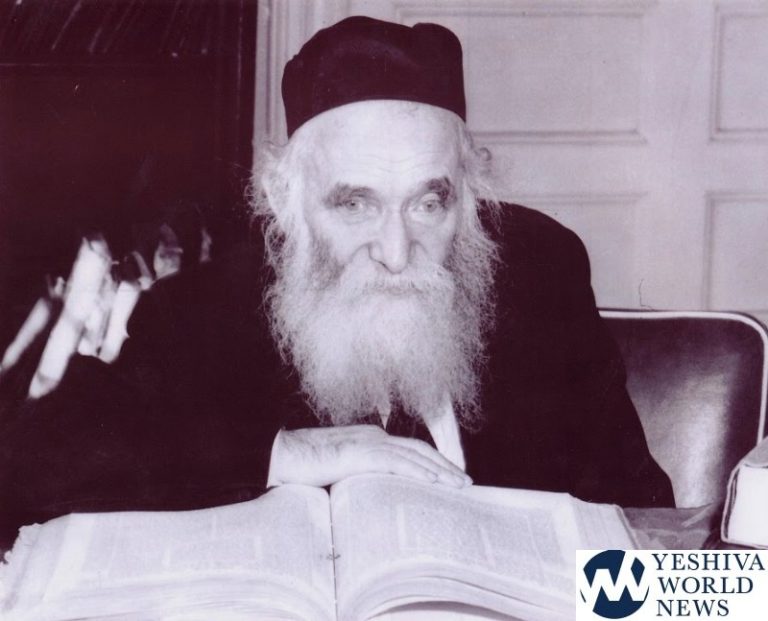
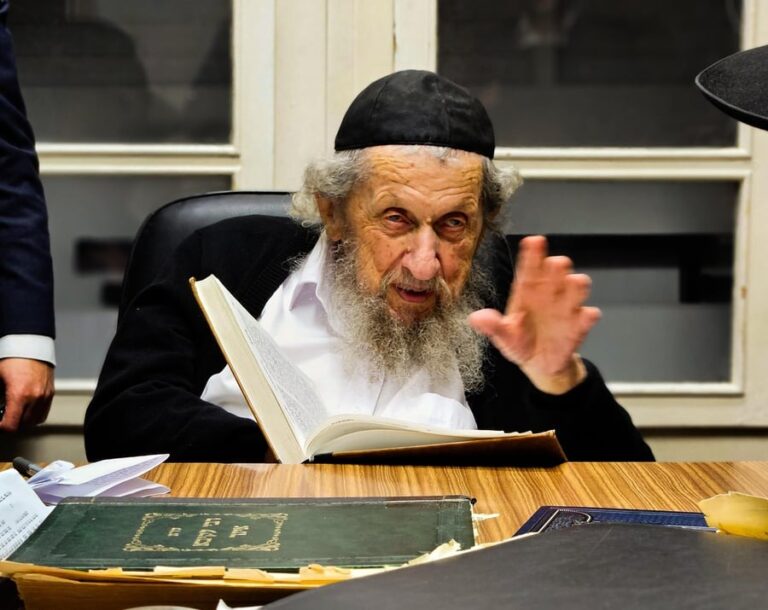
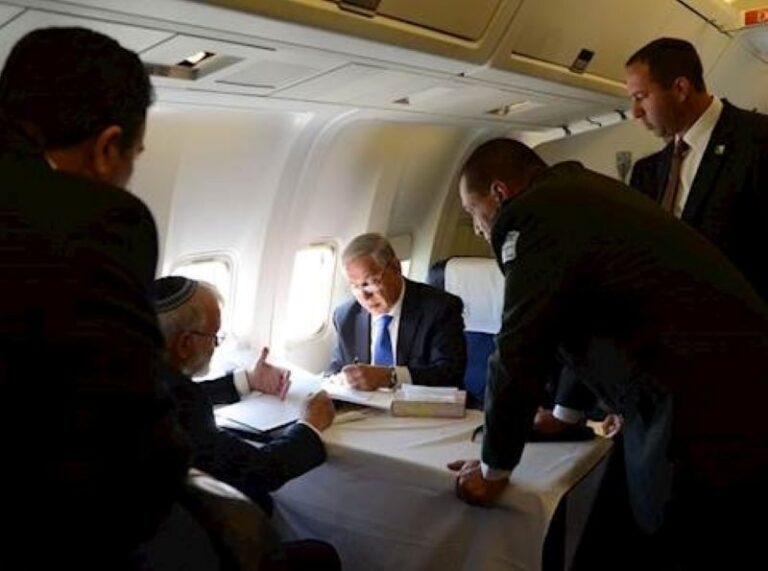
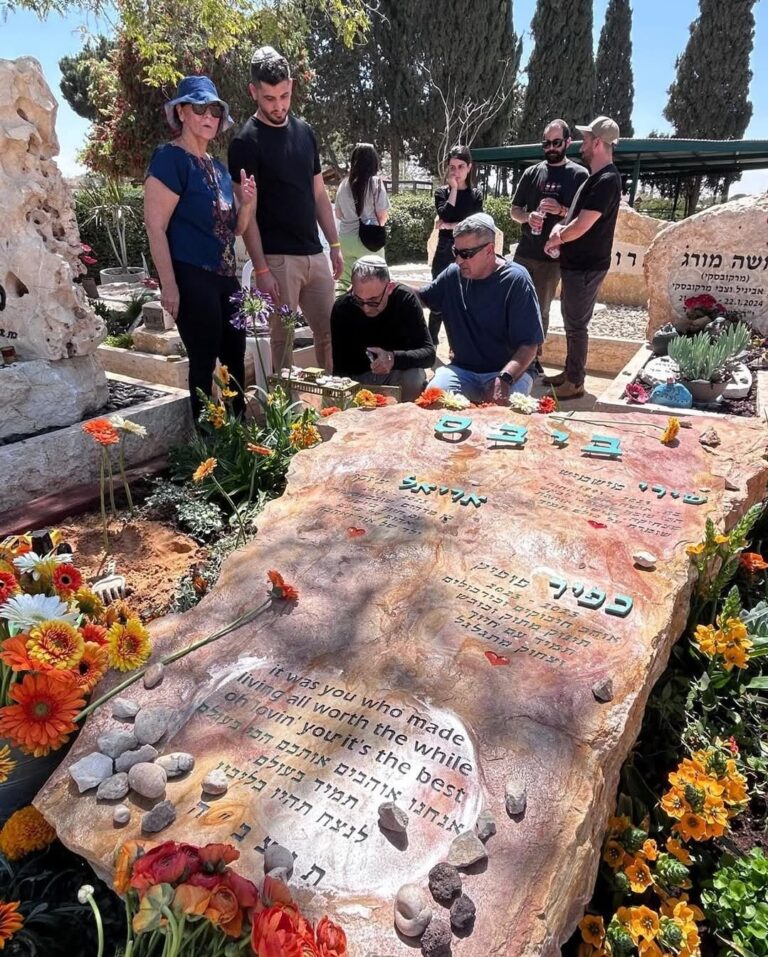

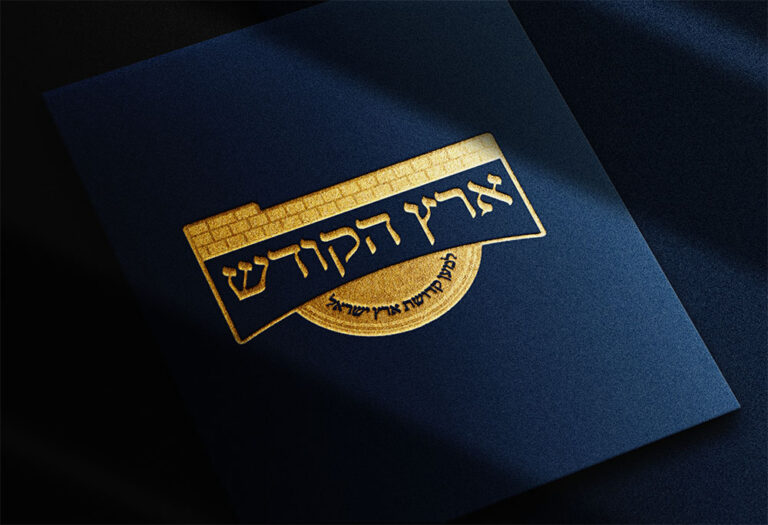

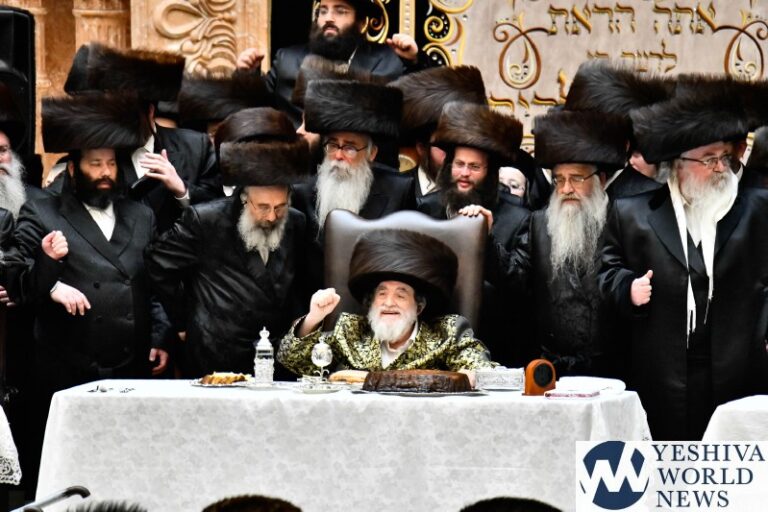
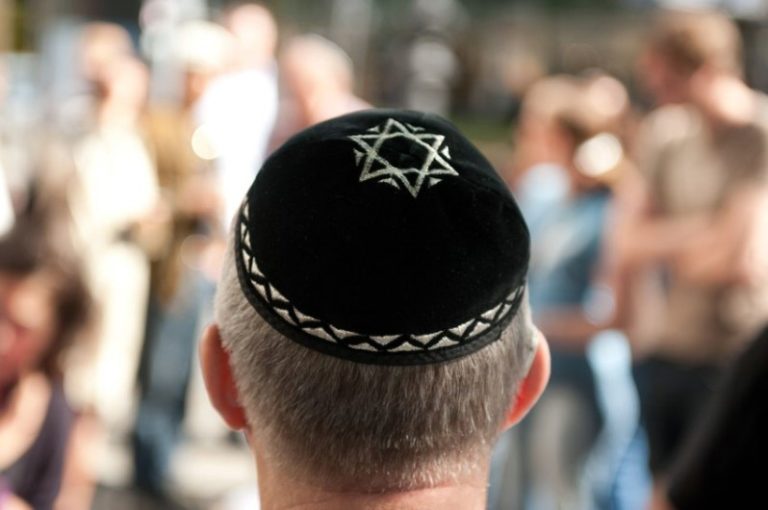
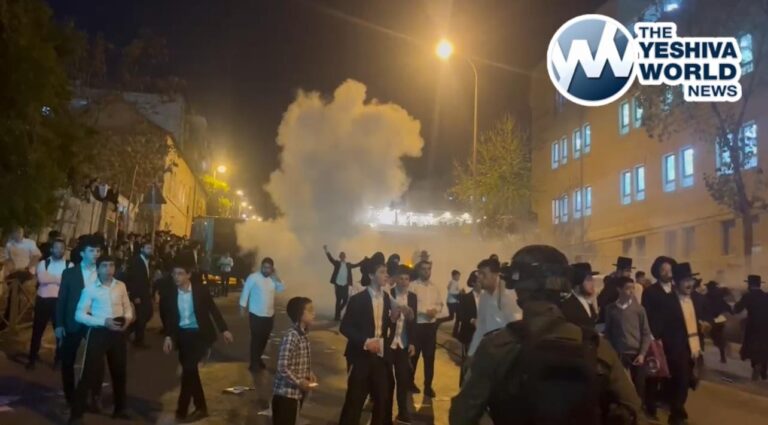

2 Responses
You never answered the Huge Question that you started out with: Why is There No Mention of Shavuos Being Matan Torah in the Torah Itself? EDITOR; READ CAREFULLY. HE DID.
Or maybe it was just an agricultural holiday… like it says in the Torah.